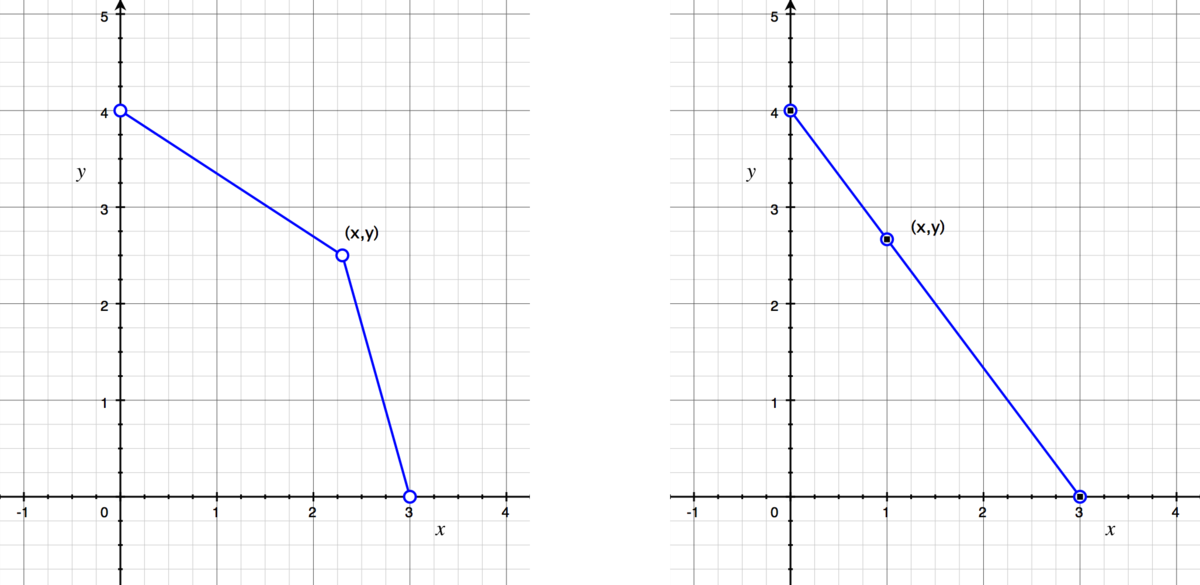A geometry problem by คลุง แจ็ค
Minimise this expression
Here, are all real numbers.
The answer is 5.
This section requires Javascript.
You are seeing this because something didn't load right. We suggest you, (a) try
refreshing the page, (b) enabling javascript if it is disabled on your browser and,
finally, (c)
loading the
non-javascript version of this page
. We're sorry about the hassle.
The formula for distance between two points is d = ( x 2 − x 1 ) 2 + ( y 2 − y 1 ) 2 This can easily be proven by constructing a right triangle where the line between the points is the hypotenuse and using the Pythagorean theorem.
This is what we get if we want to find the distance between ( x , y ) and ( 0 , 4 ) : d = x 2 + ( 4 − y ) 2 And this is what we get if we want to find the distance between ( x , y ) and ( 3 , 0 ) : d = ( 3 − x ) 2 + y 2 Adding these together gives us the expression in the question. Intuitively, the sum of the distances between the two points must be smallest if
(
x
,
y
)
lies exactly between the two points. In this case, the total distance would just be equal to the distance from
(
0
,
4
)
to
(
3
,
0
)
.
d
=
4
2
+
3
2
=
5
So the minimum value of the expression must be 5.
Intuitively, the sum of the distances between the two points must be smallest if
(
x
,
y
)
lies exactly between the two points. In this case, the total distance would just be equal to the distance from
(
0
,
4
)
to
(
3
,
0
)
.
d
=
4
2
+
3
2
=
5
So the minimum value of the expression must be 5.